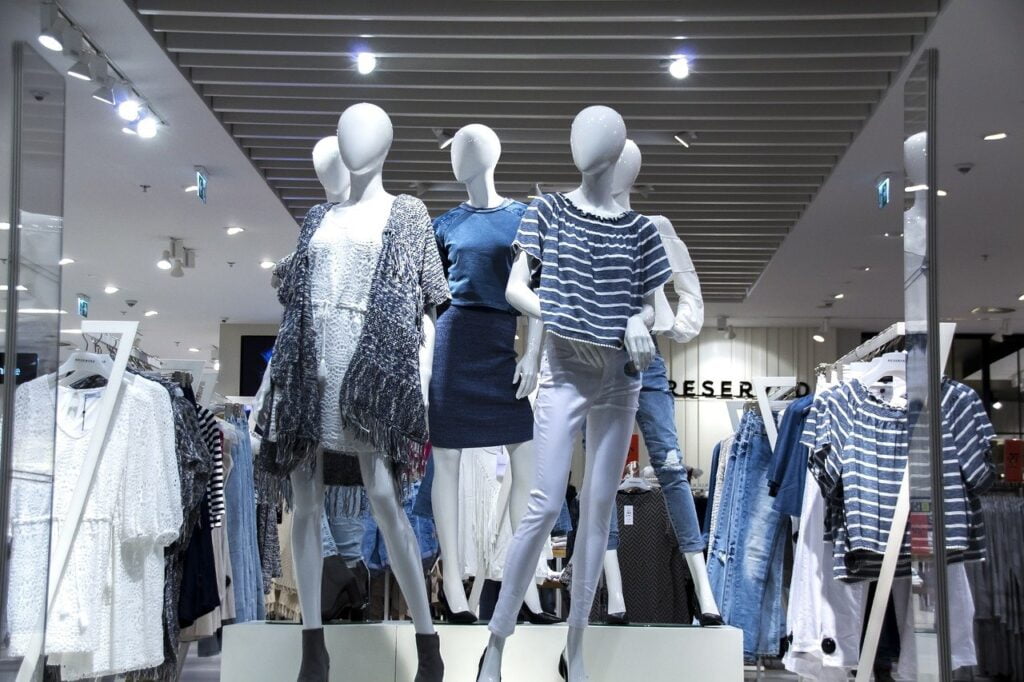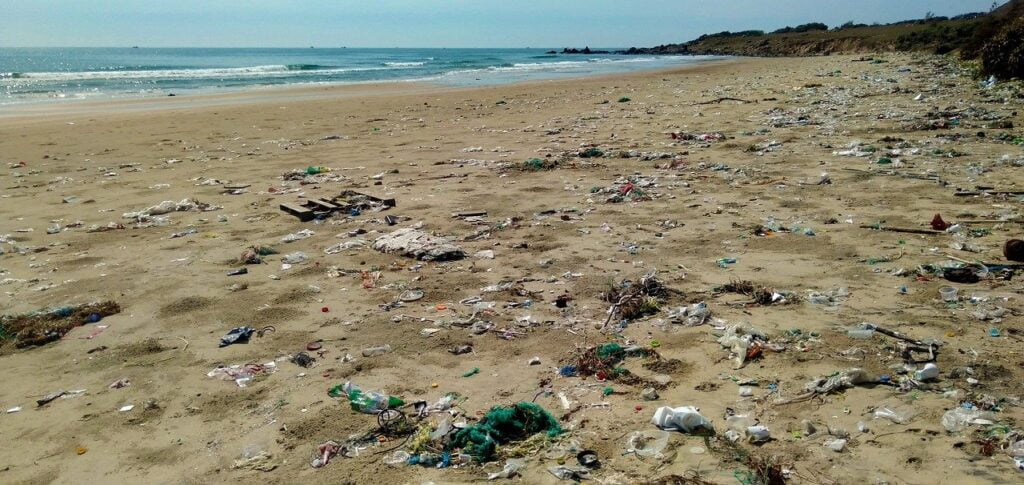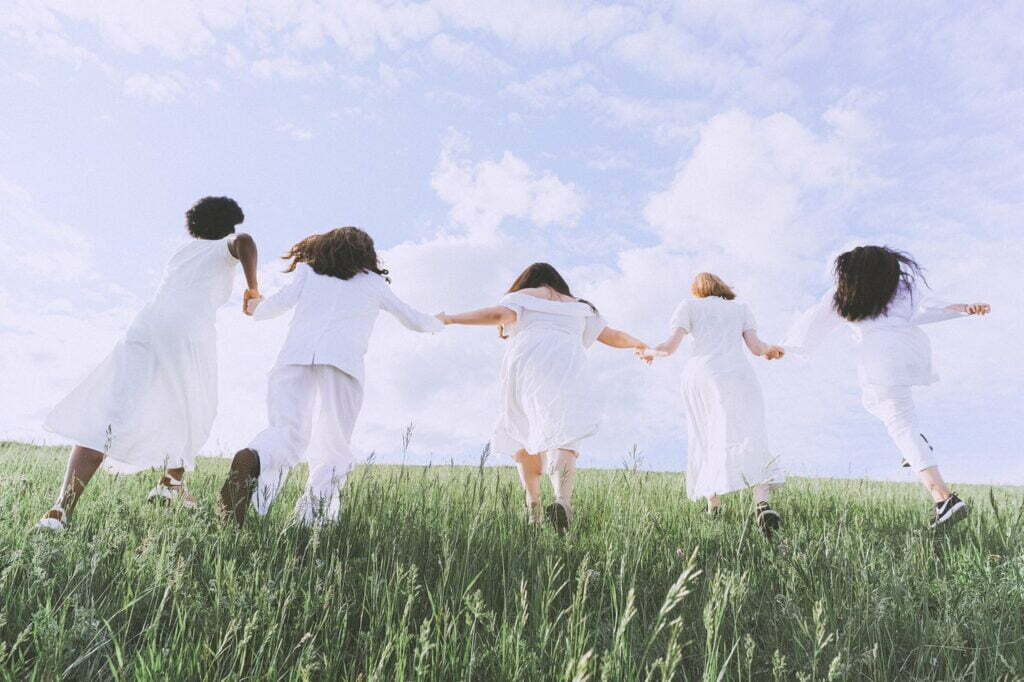How many gadgets do you own? How often do you buy something that you never end up using? Are there clothes in your wardrobe that have been purchased but never worn?
Our society has become addicted to consumption and consumerism, with 71% of the US economy spent on consumer goods. Consumption drives the world’s economy. However, this way of life is destroying our planet and our lives, and if we don’t make changes, it is all of us who will suffer.
Increased Production and Increased Consumption
It was assumed that mass production would lead to a more fulfilling life as more could be produced, with fewer man-hours and at a lower cost. We were to have more leisure time and the freedom to pursue our varied interests outside of work.
Conversely, mass production led to the opposite. Overproduction in the 1920s led to industry giants encouraging consumption among the working population. We were encouraged to work more to purchase the things we were told we needed.
And now, a century later, our free time is almost wholly focused on either using the things that we have already bought or searching for new things to buy.
Making a Population Addicted to Shopping
We have become addicted to shopping and, as a result, work to pay for the things we want to buy. And when we are not at work, our leisure time has become a time to further build the economy by purchasing goods that we don’t need. Ultimately, the goal of capitalism is to get more things.
The result of greed is that we never feel that we have enough and are always on the hunt for more. The 1980s epitomised this new philosophy with the phrase ‘greed is good’ from Michael Douglas’s character in Wall Street
We are enticed to purchase more by the adverts that surround us everywhere? literally everywhere. Eventually, these goods have become our identity: iPhone or Samsung? Ford or Toyota? PlayStation or Xbox?
Adverts have taken the social connections, that studies show lead to happiness, and have linked it to their products. An iPhone advert will show us the social relationships of using their phone and less on its features because those are the things that make us genuinely happy.
TV shows like Desperate Housewives further encourage us to pursue a life of consumption. Set in wealthy neighbourhoods, they show us what we need to have to be thought of as a success.
All of this has caused a new clinical disorder called status anxiety. The fear of being seen as a failure. So, we buy things to protect our egos.
When we purchase the latest iPhone, we are buying status symbols that make us (wrongly) believe that we are moving up the social hierarchy. We also believe that others will think we are more successful.
To pay for all these products, we have built up a mountain of debt and to service the debt we are working harder and longer than we could otherwise be. The gig economy has meant that we are all working all the time.

Consumerism is Making you Unhappy
The promise of capitalism is that it would bring us happiness. Well, has consumerism made you happier? Is the American dream just one more purchase away?
Across the US, happiness has fallen year on year since 1957. Consumerism doesn’t result in satisfaction, and it is lowering the quality of your life. When we are sad, we buy things, but this is making our mental anguish worse.
Mass consumerism has led to mass depression. Status anxiety is so universal that almost all of us worry about how others see us and judge us by the things we wear and own.
How is Consumerism destroying Social Connections?
Consumerism is also affecting our social connections.
Families are spending less time together, falling by a third since the 1930s. Children are trapped in their rooms watching TV. While parents are too exhausted after work to spend any quality time with their families.
Couples have also stopped socialising with other couples. This is known as cocooning. They are becoming more depressed and more becoming lonely.
As a society, we’re becoming more separate, more insular.
Technology was supposed to free us from work. Instead, it has made us more isolated than ever before. We can never escape the daily grind as our work’s email goes everywhere with us.

The Environmental Damage of a Throw-Away Lifestyle
The collective damage that we are doing to our environment is another aspect that we need to consider when purchasing the latest upgrade that we do not need.
The relentless addiction to buying more and more is killing our planet.
Have you heard of the copper age? Well, in the last 24 years, humans have extracted more than half of all the copper ever mined. Exhaustion of the world’s natural resources is an often-forgotten forthcoming natural disaster. In the last 100 years, humans have consumed more resources than in the previous 100,000 years.
We have pulled from the earth all the readily available resources that we are now digging deeper and taking more risks with our environment. In 2010, the BP Deepwater Horizon Well exploded. It was the deepest well in history at 35,000 ft. The explosion caused the largest oil spill in history, killing 11 people and destroying a colossal wildlife area in the Gulf of Mexico.
Of the 84,000 chemicals used in the products, only 2,000 of them have been assessed for their safety. Teflon was only discovered to be linked to cancer in the last decade. The manufacturer was aware of the dangers this chemical posed but hid its risks from the public to protect its profit margin.
Part of Louisiana, known as Cancer Alley, is so polluted that almost every household has someone who has died of cancer. A drive for profits and cheaper goods has meant that a nearby chemical plant cut corners to save money.
The average western family is responsible for so much waste that we will start to witness the coming of a great extinction within the next few decades.
Planned Obsolescence Equals Manufactured Demand
One of the reasons for this waste is that corporations have designed their products to fail after a few years. This is called planned obsolescence. Building these shoddy products ensures that we soon return to the market to replace them.

The Impact of Consumerism on the Third World
This economic model is having profound consequences on the developing world. Sweatshops have sprung up across Asia to satisfy our need for fast, cheap fashion. In Bangladesh, thousands have died in factory fires and collapses.
The manufacturer of our Apple devices (Foxconn), in China, has had so many suicides in their factories that they have had to install a suicide prevention barrier. Cambodia has used the riot police on its factory workers.
Finding Happiness in an Unhappy World
Look at the bigger picture. This lifestyle makes us unhappy, less connected, socially anxious, destroys our environment and puts at risk the lives of the poorest people on the planet. The economy encourages competition and comparison against a human history of cooperation. We have the potential for competition and cooperation, but only one will lead to happiness.
If for nothing but your own happiness, you can start to live your life differently.
We are not supposed to spend our lives working, too exhausted to enjoy what life is. That is the creation of corporations, pushing you to buy more things. The belief that chasing money and things will make a person happy is false. It won’t. Freeing your life from that chase will.
Life can be much more satisfying when we realise that it is not about acquiring new things but enjoying the life you already have. Buying new things will not make anyone happy in the long term, regardless of how they feel before purchasing. We should learn to get more out of the things we already have. Studies have shown that people who reduce their consumption of goods are happier. They learn how to find true happiness.
We can find happiness in real social connections. Reach out to friends and family and arrange to spend time together. Enjoyment has been proven to come from experiences. Leaf Van Boven at the University of Colorado Boulder found that acquiring life experiences made people happier than purchases. They help us to grow as people.

We can also find serenity in re-establishing our lost connection to nature. Our world is so void of any natural connection that we have forgotten how it can impact our mental health. Take a walk through a park and take the chance to appreciate all life.
Creativity, a skill many of us gave up in childhood, can also be a great happiness source. Find a craft or an instrument that you can work to get your creative juices flowing. Creation inspires passion in all of us. It is what we are best at.
Exercising is also essential for your mental health. Make time to exercise and switch off from the hectic lifestyle that you live.
If you feel you have a problem, join groups to help you overcome the addiction.
The economy has told you not to pursue all these things when in truth they are the things that will make us genuinely happy.





